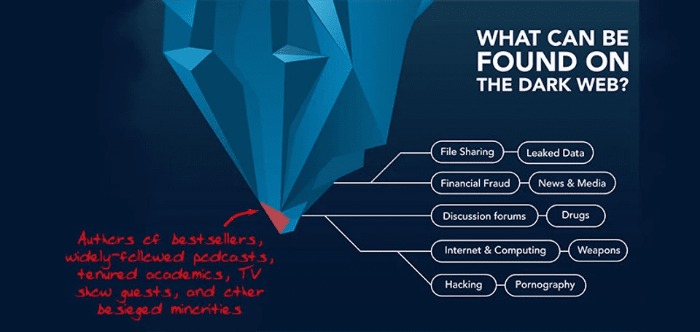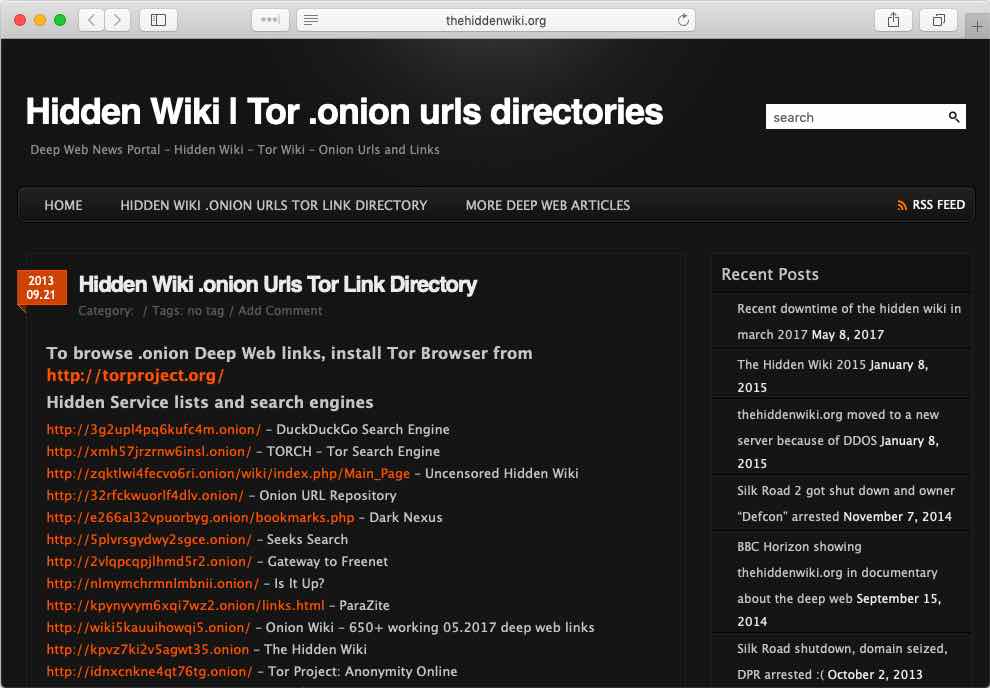Office of Public Affairs Justice Department Investigation Leads to Shutdown of Largest Online Darknet Marketplace United States Department of Justice
The recent investigation by the Office of Public Affairs within the Justice Department has culminated in the shutdown of the largest online darknet marketplace in the United States. This operation highlights the ongoing efforts by authorities to combat illegal activities facilitated by dark markets, which often serve as hubs for illicit transactions including drugs, weapons, and stolen data. Such operations are crucial in disrupting these secretive networks that operate beyond the reach of traditional law enforcement. For those interested in understanding more about these covert online spaces, exploring reputable sources on dark markets can provide valuable insights into their structure and how they are targeted by authorities.
Darknet Markets Explained TRM Blog
The investigation conducted by the Office of Public Affairs within the Justice Department has culminated in the shutdown of the largest online darknet marketplace. Dark markets are online platforms that facilitate the exchange of illegal goods and services, often operating anonymously through encrypted networks. These platforms pose significant challenges to law enforcement agencies worldwide due to their covert nature and the sophisticated methods used by vendors and buyers to evade detection.
Dark markets typically operate on hidden networks where anonymity is prioritized, making it difficult for authorities to monitor and intervene. They often feature escrow services to ensure transaction safety and include a wide range of illicit commodities such as drugs, stolen data, counterfeit items, and weapons. The shutdown of these marketplaces disrupts illegal supply chains and sends a strong message that illicit activities on the dark web will face increased scrutiny and enforcement efforts.
Several key points regarding dark markets include:
- Operated anonymously using encryption and VPN technology to conceal identities and locations.
- Serve as hubs for illicit trade, often contributing significantly to organized crime syndicates.
- Use cryptocurrencies to facilitate transactions, further enhancing anonymity.
- Regular law enforcement operations targeting these markets aim to dismantle entire criminal networks.
- The recent closure demonstrates the ongoing commitment to combat online illegal activities and protect public safety.
Understanding the dynamics of dark markets is essential for appreciating the complex efforts law enforcement agencies employ to fight cybercrime. While these markets have historically thrived due to their secrecy, continued investigations and technological advancements are instrumental in bringing illicit operators to justice and reducing their impact on society.

An Introduction to Dark Pools

Dark markets, also known as darknet marketplaces, are online platforms that operate within the hidden parts of the internet, often accessed through specialized software such as Tor. These marketplaces facilitate the anonymous exchange of goods and services, frequently involving illegal items such as drugs, counterfeit currency, stolen data, and other illicit commodities. The nature of dark markets makes them challenging for law enforcement agencies to monitor and regulate, contributing to their continued existence and growth.
The recent investigation conducted by the Office of Public Affairs and the Justice Department has led to the shutdown of one of the largest online dark marketplaces. This operation underscores the persistent efforts by authorities to combat illicit activities conducted within these hidden online spaces. Such actions serve as a reminder of the ongoing battle against cybercrime and the importance of international cooperation in enforcing laws pertaining to illegal online operations.
An important financial aspect often associated with dark markets is the use of dark pools. Dark pools are private financial forums or exchanges where investors can trade securities without revealing their identities or trade sizes to the public. While initially created for legitimate purposes such as facilitating large institutional trades, dark pools have become a topic of concern because they can be used for illicit activities, including money laundering and market manipulation. Their opaque nature makes it more difficult for regulators to oversee and detect suspicious activities, further complicating efforts to combat illegal online marketplaces.
Understanding the complexities and risks associated with dark markets and dark pools is vital in the ongoing fight against cybercrime. Continued vigilance and collaboration among law enforcement, financial institutions, and technology providers are essential to ensure these hidden online environments do not serve as safe havens for illegal operations. Awareness and education about the risks involved can also help individuals and businesses avoid falling victim to scams or facilitating criminal activities through unregulated online platforms.
How KELA Cyber Supports You In Darknet Monitoring And Risk Mitigation
The investigation conducted by the Office of Public Affairs within the Justice Department has resulted in the shutdown of the largest online darknet marketplace, marking a significant development in the fight against cybercrime. Dark markets, often utilized for illegal transactions including drug trafficking, weapons sales, and stolen data exchange, pose substantial challenges to law enforcement agencies worldwide. The crackdown highlights the increasing efforts to combat illicit activities that thrive in the shadows of the internet.
Cybersecurity firms like KELA Cyber play a crucial role in supporting organizations through comprehensive darknet monitoring and risk mitigation strategies. By employing advanced intelligence tools and real-time data analysis, KELA Cyber helps identify emerging threats and suspicious activities within these hidden online environments. Their services enable businesses and government agencies to stay ahead of malicious actors operating within dark markets, reducing exposure to cyber threats and illegal operations.
Effective darknet monitoring involves tracking aggregated data points such as marketplace listings, hacker forums, and stolen data leaks, which can signal potential risks. KELA Cyber’s expertise in analyzing these digital footprints provides valuable insights into threat actor behavior, allowing for timely intervention and enhanced cybersecurity measures. This proactive approach is essential for safeguarding sensitive information and maintaining operational integrity in an increasingly interconnected digital landscape.
As law enforcement continues to dismantle major illegal online marketplaces, the role of cyber intelligence tools becomes even more vital. The collaboration between public agencies and private cybersecurity providers creates a more resilient defense against cyber criminal activities, ensuring a safer digital environment for individuals, organizations, and governments. Staying informed and prepared is key in managing the evolving landscape of dark markets and other cyber threats effectively.

“Illuminating the Need for Regulation in Dark Markets: Proposed Regulat” by Frank D’Souza, Nan S Ellis et al.
Dark markets have become a focal point of concern in today’s increasingly interconnected digital landscape, highlighting the urgent need for effective regulation. These clandestine platforms facilitate illegal transactions and operate outside the reach of traditional oversight, posing significant challenges for law enforcement and policymakers alike. As illicit activities continue to flourish within these hidden networks, scholars and experts advocate for comprehensive regulatory frameworks to promote transparency and safety in these shadowy environments. Addressing the complexities of dark markets requires innovative approaches that balance security with individual rights, ensuring that the digital economy remains both robust and resilient. For those interested in exploring further, resources are available that delve into the intricacies of dark markets and potential regulatory strategies.
Top 5 Dark Web Marketplaces to Monitor
- The distribution of the shipping origins for all products seems to differ from counterfeits.
- The darknet is a mysterious and often misunderstood part of the internet, attracting both intrigue and concern.
- We considered the entire transaction data of 31 dark marketplaces (see Supplementary Information Section S2) between June 18, 2011, and July 24, 2019.
- The seizure of the Hydra servers and cryptocurrency wallets containing $25 million worth of bitcoin was made this morning in Germany by the German Federal Criminal Police (the Bundeskriminalamt), in coordination with U.S. law enforcement.
- The lack of transparency can also work against a pool participant since there is no guarantee that the institution’s trade was executed at the best price.
- It is one of the most active and up to date markets and always provides new and updated malware and data.
The growth of dark markets has raised significant concerns regarding safety, legality, and security on the internet. These hidden marketplaces operate outside the reach of conventional law enforcement, facilitating a range of illicit activities including drug trafficking, illegal weapons sales, and cybercrime services. As these markets expand, the need for effective regulation becomes increasingly urgent to protect consumers, curb illegal transactions, and maintain the integrity of digital ecosystems.
Research by experts such as Frank D’Souza and Nan S. Ellis emphasizes the pressing necessity for a regulatory framework that addresses the unique challenges posed by dark markets. Unlike traditional online markets, dark markets are often cloaked in anonymity, making oversight difficult but not impossible. Implementing targeted regulations can help deter criminal activities, improve transparency, and promote safer online interactions. Establishing legal boundaries and enforcement mechanisms is essential to mitigating the risks associated with these virtual spaces.
Among the various dark web marketplaces, some have garnered notable attention due to their volume of transactions and influence within illegal networks. Monitoring these top platforms diligently enables authorities and cybersecurity professionals to better understand illicit activity trends, gather intelligence, and develop strategies to dismantle harmful operations. While these platforms operate covertly, increasing awareness and regulation play critical roles in curbing their harmful impact.
In conclusion, addressing the complexities of dark markets requires a balanced approach that combines robust regulation, technological innovation, and international cooperation. By illuminating the need for oversight and establishing clear legal standards, stakeholders can work towards creating a safer digital environment that discourages illicit activities while respecting individual rights and freedoms.
Collective dynamics of dark web marketplaces Scientific Reports
The increasing prevalence of dark markets on the internet has raised significant concerns regarding legality, safety, and ethical considerations. Dark markets serve as hidden hubs where illicit goods and services are exchanged, often evading traditional regulatory oversight. To address these issues, there is a pressing need for effective regulation strategies that can mitigate associated risks while respecting individual privacy rights. The study by Frank D’Souza, Nan S. Ellis, and colleagues highlights the importance of understanding the collective dynamics within these marketplaces to inform targeted regulatory interventions.
Through analyzing the complex interactions and behaviors of participants in dark markets, research reveals patterns that can predict marketplace stability and vulnerability to law enforcement actions. These insights are crucial for developing regulations that can efficiently disrupt illegal activities without causing undue harm to legitimate online commerce. Implementing such strategies requires a nuanced understanding of how dark markets operate, including the roles of vendors, buyers, and the technological infrastructure supporting transactions.
While the anonymity of dark markets complicates enforcement efforts, innovative approaches grounded in scientific analysis of user behavior and network dynamics can enhance regulatory effectiveness. Policymakers and stakeholders must collaborate to create frameworks that strike a balance between suppressing illegal activities and safeguarding individual freedoms. Ultimately, regulating dark markets necessitates an informed and adaptive approach that evolves alongside the technological landscape, ensuring that governance keeps pace with emerging challenges in digital criminal ecosystems.

Counterfeits on dark markets: a measurement between Jan-2014 and Sep-2015
Dark markets have emerged as clandestine digital environments that facilitate the exchange of illicit goods and services, often operating beyond the reach of conventional regulatory frameworks. As these markets expand, the challenge of safeguarding consumers and maintaining market integrity becomes increasingly pressing, underscoring the need for effective regulation. The research conducted by Frank D’Souza, Nan S. Ellis, and colleagues offers valuable insights into the prevalence of counterfeit products within this shadowy realm, highlighting the urgent necessity for regulatory intervention.
The study, titled “Counterfeits on dark markets: a measurement between Jan-2014 and Sep-2015,” provides empirical evidence on the scale and scope of counterfeit activity in dark markets over an 18-month period. Through meticulous data collection and analysis, the authors reveal that a significant portion of transactions involve counterfeit items, ranging from luxury goods and pharmaceuticals to electronics. This proliferation of counterfeit products not only undermines legitimate businesses but also poses serious safety and health risks to consumers, emphasizing the critical importance of implementing appropriate regulatory measures.
The complexities of dark markets—characterized by anonymous participants, encrypted communications, and decentralized transactions—present substantial hurdles for regulatory agencies. Nevertheless, the findings from this research illustrate that targeted regulations, combined with technological advancements such as monitoring algorithms and blockchain analysis, can help detect and curtail illegal activities. Strengthening international cooperation and creating standardized legal frameworks are also essential steps toward illumination and oversight of these secretive online spaces.
Ultimately, the evidence underscores that addressing the challenges posed by dark markets requires a coordinated approach that balances enforcement with innovative policies. Proactive regulation is vital to protect consumers, uphold market fairness, and dismantle the infrastructure supporting illicit trade in counterfeit goods, ensuring a safer and more transparent digital economy.


